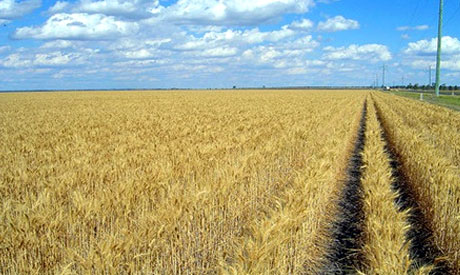
A class action lawsuit was filed on behalf of Pacific Northwest wheat farmers and the food advocacy group, the Center for Food Safety (CFS). Oregon farmers endured decreased wheat prices after illegal genetically modified (GMO), herbicide-resistant wheat plants were found in an Oregon farmer's field. The GMO plants, created by Monsanto, have not been approved for commercial production or sale in the U.S.
The wheat was discovered by an Oregon farmer who noticed some volunteers among his crop were resistant to glyphsate (marketed by Monsanto as Roundup) and sent samples to an Oregon State University scientist. The scientist found that they tested positive for the glyphosate trait.
The discovery of GMO wheat caused top wheat importers to restrict imports of American wheat or call for testing. Japan, the second largest buyer of U.S. wheat behind Mexico, temporarily suspended the importation of western white wheat for food and western wheat for feed. South Korea announced that it will test all wheat and wheat flour from the U.S. The EU advised its member states to test U.S. white wheat. As of May 30, Bloomberg News reported that wheat prices fell. Wheat futures for July delivery fell by 0.6 percent. The USDA reported as of June 13 that July wheat futures were "lower," and were "pressured during the week by slow export demand."
The Center for Food Safety and Washington white wheat farmers are representing the broad class of farmers affected by the contamination, seeking relief and forcing Monsanto to take measures to clean up the contamination. In addition, the farmers are seeking compensatory damages for class members resulting from the decreased prices for white wheat due to the contamination, and increased grower costs to maintain the integrity of the white wheat supply.
Read more about Monsanto's 'healthy' soybean oil
"Monsanto has put our farmer’s wheat export market at grave risk. Billions of dollars, and our food supply, is at risk because of Monsanto’s negligence. They must be held accountable," said Andrew Kimbrell, executive director Center for Food Safety.
From 1998 to 2005, Monsanto conducted field tests of its GMO glyphosate-resistant wheat plants in 16 states. During that time period, the USDA's Animal and Plant Health Inspection Service (APHIS) authorized more than 100 field tests of glyphosate-resistant wheat. The field tests were conducted in Arizona, California, Colorado, Florida, Hawaii, Idaho, Illinois, Kansas, Minnesota, Montana, Nebraska, North Dakota, Oregon, South Dakota, Washington, and Wyoming. APHIS last approved field trials of glyphsate-resistant GMO wheat in Oregon in 2001. Monsanto never commercialized the crop, but decided in May 2004 to give up pursuing regulatory approval because of market resistance.
Photo Credit: raeallen




